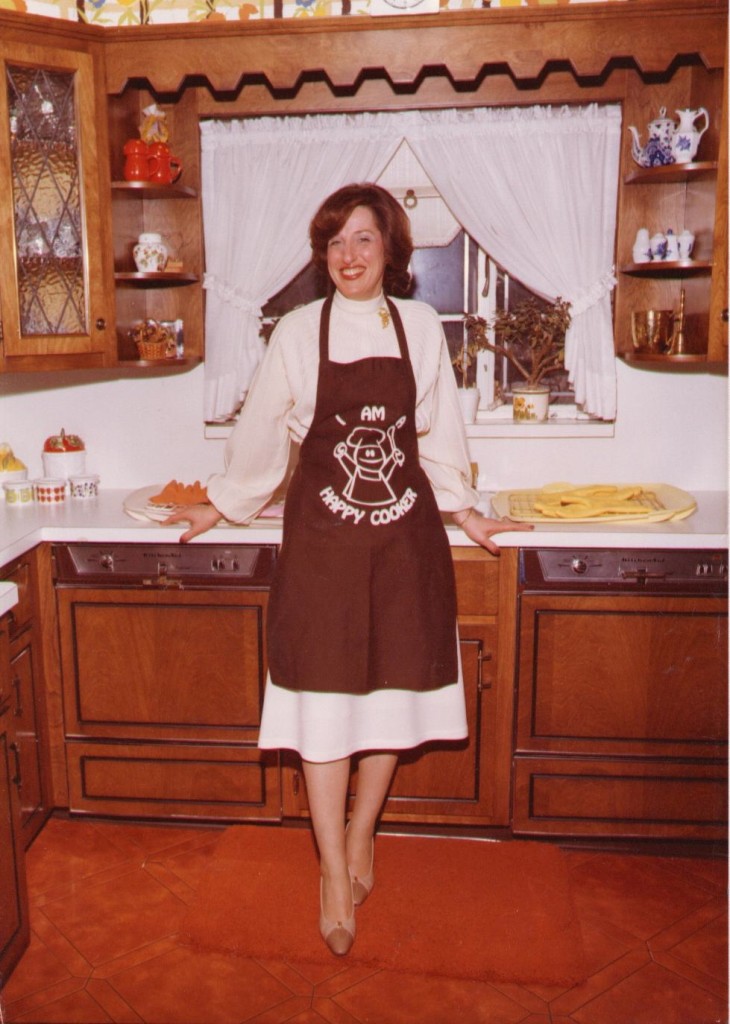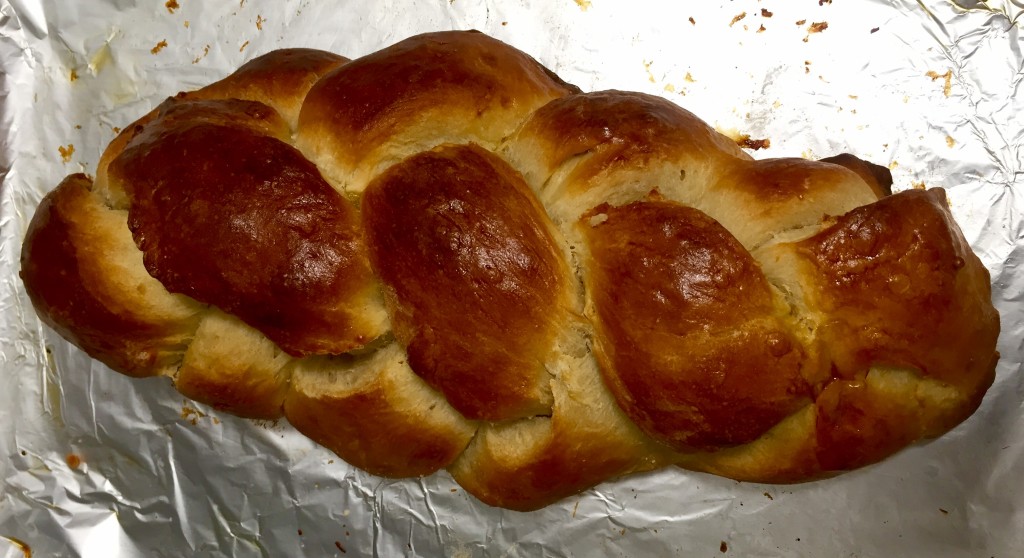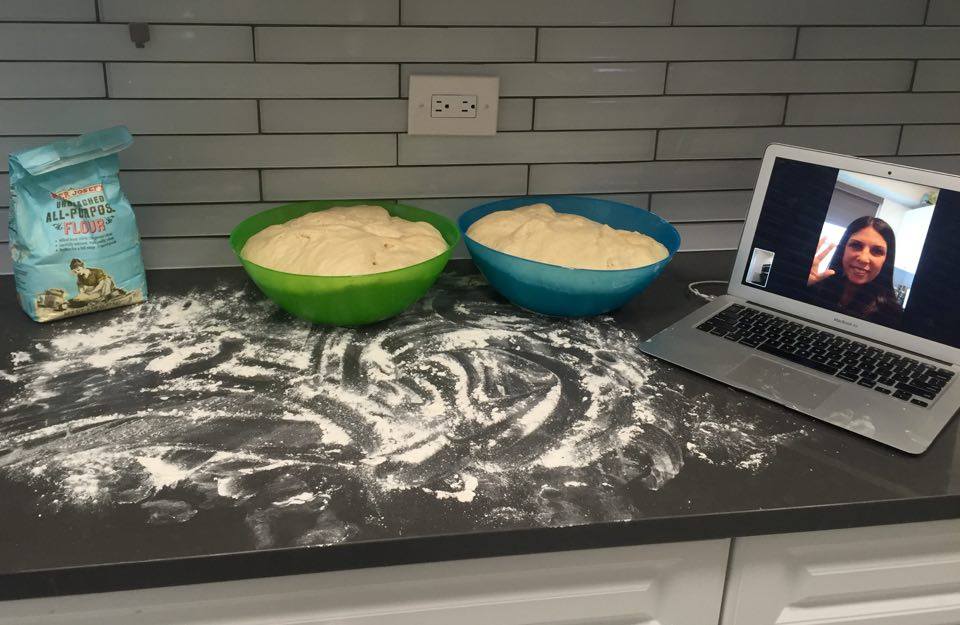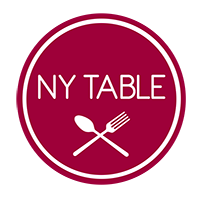
My paternal grandmother, Ruth Wildes, standing in her kitchen in an apron that reads, “I am a happy cooker.”
My father’s late mother only had one day off in the kitchen. On Tuesday she planned her menu, Wednesday she bought groceries, Thursday she prepared the dishes, and Friday she picked up fresh produce.
The three-course meal was shared by family and friends who gathered around a starched and ironed white linen tablecloth on Friday evening and Saturday afternoon to commemorate the Jewish Sabbath—and Sunday as leftovers. Even on her “day off” she wasn’t free from kitchen duty. On a typical Monday night, she served half a grapefruit, a piece of broiled fish and a baked potato. Tuesday she was back to menu planning.
Every week was just like the previous one, except the company and food continually revolved. My grandmother’s guests talked about politics, religion, the weekly bible portion, and neighborhood gossip as they munched on macaroni salad with green olives, a full head of cauliflower in a creamy béchamel sauce, cold poached salmon with Dijon mustard, corned beef, and Cornish hens. She took pride in her ever-expanding table, which seated an average of 8 people each weekend despite the fact that she only had two sons.
But she passed away when I was just three years old, and I never got to be her sous chef.
My mother’s mother, on the other hand, has a fridge stocked with expired goods. She simplifies her life by ordering take out. Especially Chinese. She also loves to travel and to try new foods, to go on culinary adventures—she’s eaten curried chicken in Ho Chi Minh City, tomato bread soup in Tuscany, bratwurst and sauerkraut in Munich.
But she is less adventurous in the kitchen, despite the fact that she has a home-economics degree from Hunter College. My mother grew up eating canned vegetables boiled to death, bland starches and “some sort of meat.” She remembers her brother sneaking soggy vegetables into his pants pocket and flushing them down the toilet, discretely. He got away with it for a few years before my grandma caught on.
When my parents married, my mother tried to recreate her mother-in-law’s dinner table. My father says no matter how hard she tries (and he is appreciative of her efforts), he hasn’t tasted cold apple pie as delectable as his mother’s in over 20 years. He can still smell the slow-cooked fatty beef flanken that filled the house every Friday. He used to whisper the words “lemon meringue pie” into his father’s ear to wake him from his Saturday afternoon naps.
Growing up, we had a mix of take-out and home-cooked meals. I loved my mom’s Sloppy Joes and Wacky Mac just as much as I enjoyed the nights she, like her mother, ordered in Chinese.
She has since mastered the perfect hybrid meal: she orders cucumber salad, broccoli quiche and sliced steak from the kosher butcher that she plates alongside her freshly roasted vegetables and basmati rice, made in an as-seen-on-TV electric rice maker.
But my mother never invited me into the kitchen; she had no use for an assistant, no need for a carrot peeler. And I had no interest in learning.
At least not until I moved out of my parents home and out of my college dorm and into my first shoebox-sized New York apartment. I started with salads and pasta before graduating to chicken and eventually brisket. I sat by the oven, watching, for the full three hours my first brisket baked. It baffled me how easy my mother’s recipe was: pour Coca-Cola and chopped onions over the brisket. That’s it. I must have been doing something wrong, I thought.
A few hours later, when twelve of my friends and my sister came over after synagogue on a rainy Friday night, I sliced into the brisket—against the grain, as my mom explained to me over the phone—and put it on the table, still skeptical. Brisket was a delicacy at a potluck meal like this. But as it was passed around and placed on each person’s paper plate—something my father’s mother would never allow—I felt a sense of pride as I saw my roommate’s boyfriend licking his fingers and asking for more.

The challah.
That was one year ago, and ever since I’ve become quite intrepid in the kitchen, experimenting with barbecue pulled beef, homemade chicken soup, raspberry almond bars, and salads with complicated dressings. My mom, sister and I video-chat in those chaotic minutes before the Sabbath rolls in—and the oven must be turned off—to make sure our chicken is cooked through and to show off our weekly dishes.
And while all three of us are parading our food, making a mess in the kitchen and chattering about whom we’re going to be eating with, I like to picture my father’s mother smiling down. Because I now spend my week the way she spent hers, and she would be proud of my expanding table, even though might not be as elegant as hers.

Video chatting with my mom, Amy Wildes, as I prepare to braid the challah, a bread traditionally eaten on the Sabbath (pictured above).

Your Comments